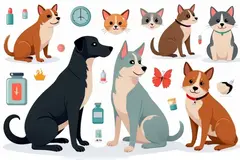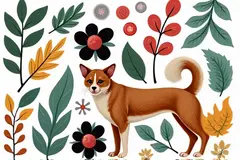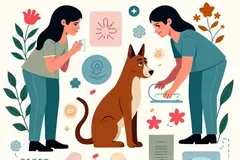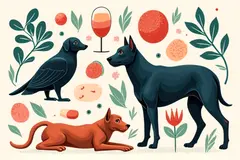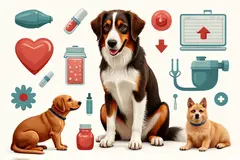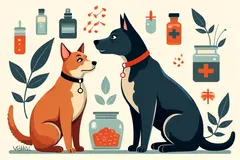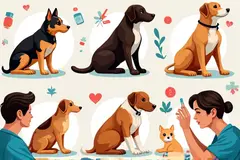 To take off of the teat or to stop from nursing; to wean an animal off of its mother's milk.... ↪ Read more
To take off of the teat or to stop from nursing; to wean an animal off of its mother's milk.... ↪ Read more Veterinary Drug Handbook (VDH) is the reference veterinarians turn to when they want an independent source of information on the drugs that are used in veterinary medicine today.
-
 Is veterinary Liniment Gel safe for humans?
Is veterinary Liniment Gel safe for humans? -
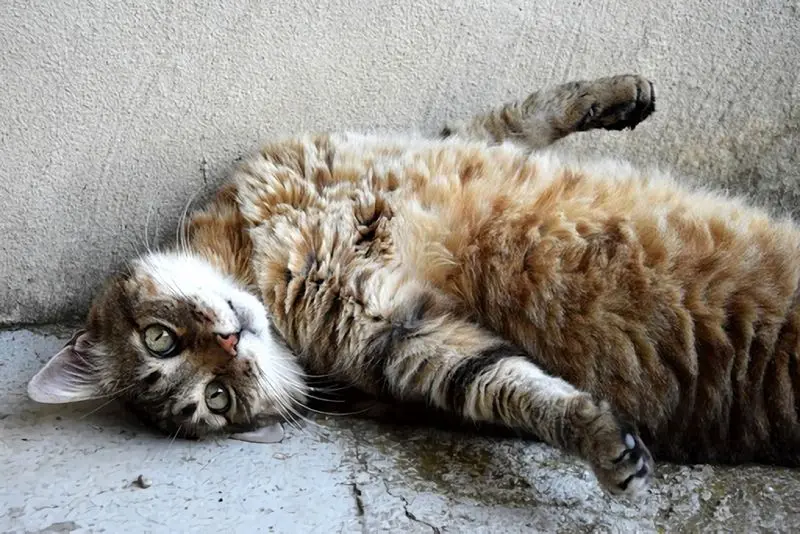 Giving Your Cat A Pill
Giving Your Cat A Pill -
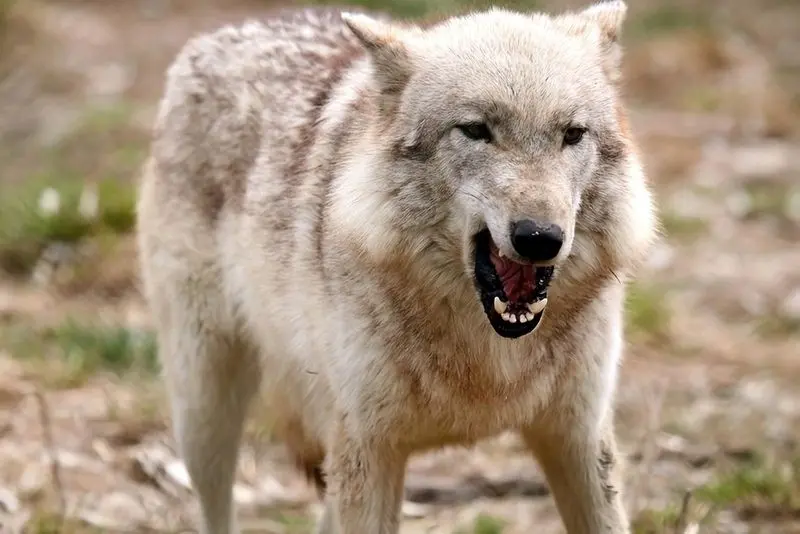 Dog Aggression
Dog Aggression -
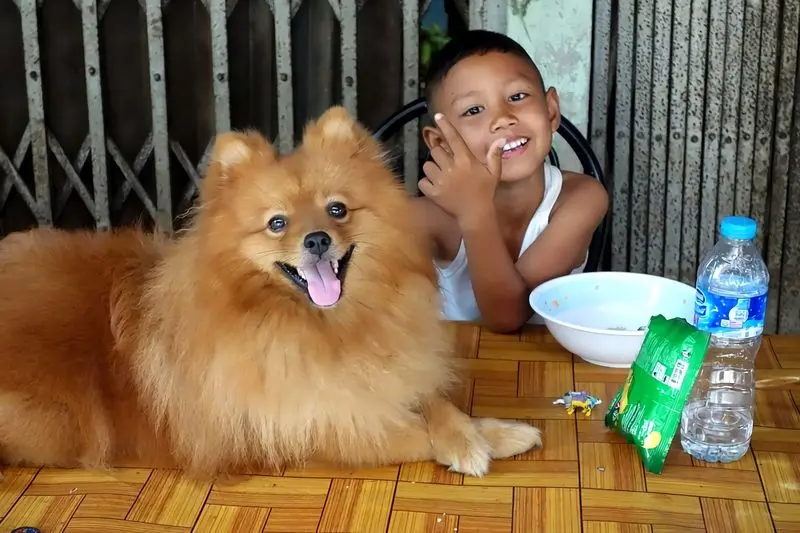 Dogs May Help Boost Infant Health
Dogs May Help Boost Infant Health -
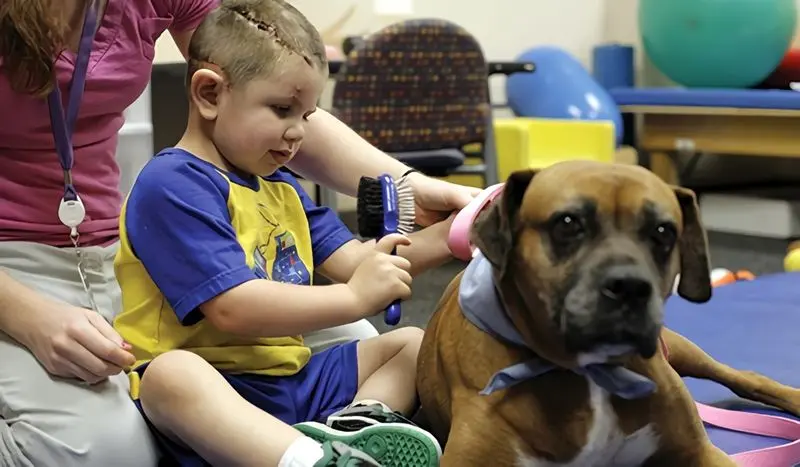 Animal-Assisted Therapy, Veterinary Social Work, & Social Work With People & Pets in Crisis
Animal-Assisted Therapy, Veterinary Social Work, & Social Work With People & Pets in Crisis -
 On-demand veterinary service gives advice on poorly pets
On-demand veterinary service gives advice on poorly pets -
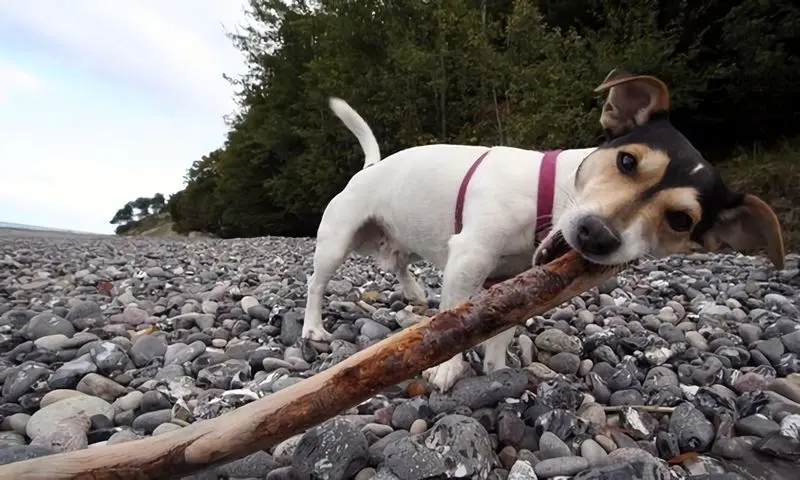 Should we stop throwing sticks for dogs?
Should we stop throwing sticks for dogs? -
 Can breathing in cat hair be harmful?
Can breathing in cat hair be harmful? -
 What does PU/PD mean in veterinary medicine?
What does PU/PD mean in veterinary medicine? -
 Bill calls for ban on sales of dogs, cats in Maine pet stores
Bill calls for ban on sales of dogs, cats in Maine pet stores -
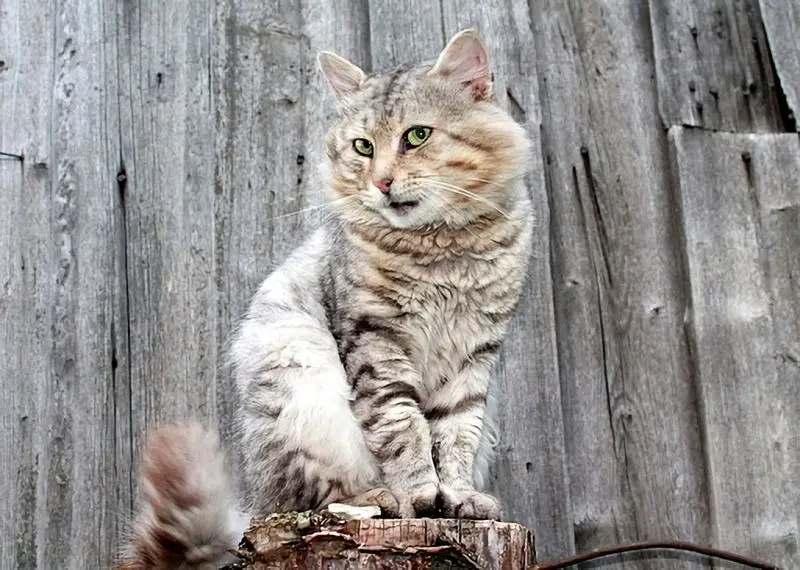 Common Meanings Of Cat Behavior
Common Meanings Of Cat Behavior -
 What does DVM stand for in veterinary?
What does DVM stand for in veterinary? -
 Curing Bad Cat Breath
Curing Bad Cat Breath -
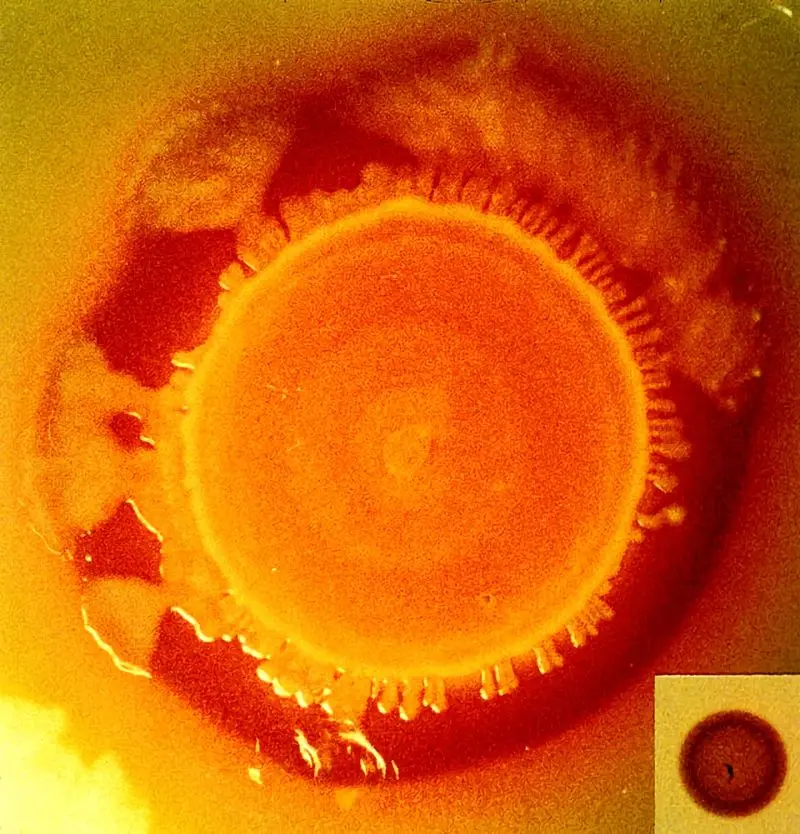 New Tracking Tool for Pathogen Investigators
New Tracking Tool for Pathogen Investigators -
Can binturongs be kept as pets?
-
 How long do instruments stay sterile after autoclaving veterinary?
How long do instruments stay sterile after autoclaving veterinary?
Ablactate
 To take off of the teat or to stop from nursing; to wean an animal off of its mother's milk.... ↪ Read more
To take off of the teat or to stop from nursing; to wean an animal off of its mother's milk.... ↪ Read more Abiotrophy (n.)
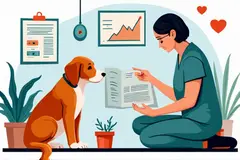 Abiotrophy refers to the loss of use of an organ in particular. In most cases, .this is a progressive condition and is inheritable. Abiotrophy may occur in an organ, .a tissue, .or even the nervous system.... ↪ Read more
Abiotrophy refers to the loss of use of an organ in particular. In most cases, .this is a progressive condition and is inheritable. Abiotrophy may occur in an organ, .a tissue, .or even the nervous system.... ↪ Read more Acclimatization
Acclimate
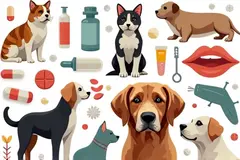 To become accustomed to new actions, .surroundings, .environment, .or companions. Ex: a dog may need to acclimate himself to a new home upon adoption from a shelter.... ↪ Read more
To become accustomed to new actions, .surroundings, .environment, .or companions. Ex: a dog may need to acclimate himself to a new home upon adoption from a shelter.... ↪ Read more Acarine
Acarid
Acaricide
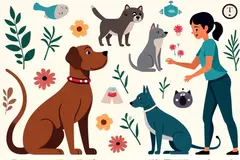 Any substance known to kill certain parasites, .including ticks and mites. May be found in the form of a paste, .a liquid, .or a powder.... ↪ Read more
Any substance known to kill certain parasites, .including ticks and mites. May be found in the form of a paste, .a liquid, .or a powder.... ↪ Read more Abundance
Absorption rate
Absorption
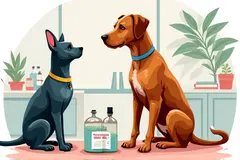 In veterinary medicine, .the joining of already digested nutrients with the circulatory system. Absorption is how an animal's body makes use of nutrients from food.... ↪ Read more
In veterinary medicine, .the joining of already digested nutrients with the circulatory system. Absorption is how an animal's body makes use of nutrients from food.... ↪ Read more Absolute age
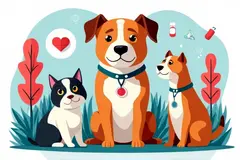 In veterinary medicine, .refers to an animal's actual age in calendar years rather than the age pertaining to their development. ex: absolute age (actual age) vs. age in 'dog years.... ↪ Read more
In veterinary medicine, .refers to an animal's actual age in calendar years rather than the age pertaining to their development. ex: absolute age (actual age) vs. age in 'dog years.... ↪ Read more Parotid
Popular Diagnoses
Packed cell volume (PCV, hematocrit) Reflex ovulator Mucolytic Microfilaricide Bronchodilator Hematocrit Glucocorticoid Monoamine oxidase inhibitor (MAOI) ↪ All veterinary diagnoseOther Diagnoses
Atrium (plural atria) Atrial fibrillation / flutter Attenuated Autoimmune Bacteriocidal Bacteriostatic B cell BenignPopular Veterinary Clinics
VCA Welborn Animal Hospital, 7860 Washington Avenue Kansas City, KS 66112 USA MedVet Columbus, 300 East Wilson Bridge Road, Worthington, OH Rutland Veterinary Clinic & Surgical Center, 90 East Pittsford Road, Rutland, VT VCA Paradise Valley Emergency Animal Hospital, 6969 East Shea Boulevard Suite 150 Scottsdale, AZ 85254 USA Connecticut Veterinary Center & Pet ER, 470 Oakwood Ave West Hartford, CT 06110 USA Norway Veterinary Hospital, 10 Main St P.O. Box 273 Norway, ME 04268 USA Craig Road Animal Hospital, 5051 West Craig Road, Las Vegas, NV Abri Veterinary Hospital Inc, 1449 Trademart Boulevard Winston-Salem, NC 27127 USA ↪ All veterinary clinicsOther Veterinary Clinics
North Jersey Animal Hospital, 197 Hamburg Turnpike Wayne, NJ 07470 USA Valley Animal Hospital, 1171 Valley Road Clifton, NJ 07013 USA Midland Park Veterinary Hospital, 70 Goffle Rd Midland Park, NJ 07432 USA Cedar Grove Animal Hospital, 370 Pompton Avenue Cedar Grove, NJ 07009 USA Maywood Veterinary Clinic, 138 West Pleasant Avenue Maywood, NJ 07607 USA Arlington Dog & Cat Hospital, 857 Passaic Avenue Kearny, NJ 07032 USA VCA Rutherford Animal Hospital, 755 Rutherford Avenue Rutherford, NJ 07070 USA Secaucus Animal Hospital, 190 County Avenue, Secaucus, NJPopular Drugs
DOXYLAMINE SUCCINATE Doses - PENICILLIN V POTASSIUM Doses - METHYLPREDNISOLONE, METHYLPREDNISOLONE ACETATE, METHYLPREDNISOLONE SODIUM SUCCINATE ACEPROMAZINE MALEATE Doses - PREDNISOLONE, PREDNISOLONE SODIUM SUCCINATE, PREDNISOLONE ACETATE, PREDNISONE Doses - FURAZOLIDONE Doses - FERROUS SULFATE Doses - LEVAMISOLE ↪ All veterinary drugOther Drugs
Drontal® Plus (praziquantel / pyrantel pamoate / febantel) TabletsBroad Spectrum Anthelmintic for Dogs Oxytocin Injection Purified Oxytocic Principle (20 USP Units per mL) FOR ANIMAL USE ONLY HAZARDOUS KEEP OUT OF REACH OF CHILDREN Ivermectin (ivermectin) Pour-On for Cattle ANADA 200-318, Approved by FDA Contains 5 mg ivermectin / mL Parasiticide Consult your veterinarian for assistance in the diagnosis, treatment and control of parasitism. Introduction: IVERMECTIN (iveremctin) Pour SOLOXINE® (LEVOTHYROXINE SODIUM) TABLETS Ivermax (ivermectin) Pour-On for Cattle ANADA 200-318, Approved by FDA Contains 5 mg ivermectin / mL Parasiticide Consult you veterinarian for assistance in the diagnosis, treatment and control of parasitism. Introduction: Ivermax (ivermectin) Pour-On del TOXI-SORB BOLUS Bimeda, Inc. Division of Cross Vetpharm Group SulfaMed-G (brand of Sulfadimethoxine) Soluble Powder ANADA 200-376, Approved by FDA Droncit® (praziquantel)Popular Terms
Subalbinotic Steatis Uteroverdin Paradoxical CSF acidosis Figure of 8 suture pattern Nerve root signature Ovariohysterectomy Abrev OVH Signalment ↪ All veterinary termOther Terms
Bunodont Burro Burry Hypoxia Hypsodont Hysterecomy Hystricomoprh Dungveterinary-help.com
© 2011-2025 Veterinary Clinics, Diagnoses, Terms and Drug Handbook Online


